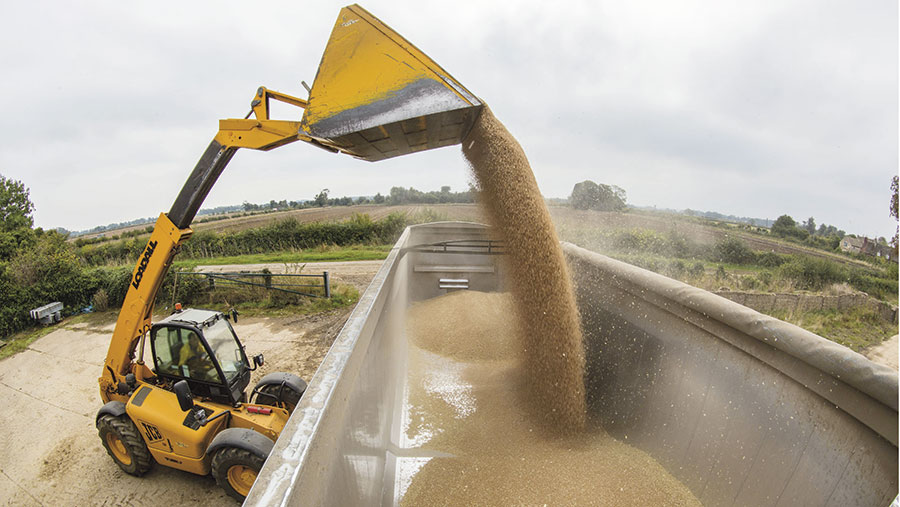Wellgrain’s creditors to get a few pence in the pound
 © Tim Scrivener
© Tim Scrivener Farmer creditors of failed Cambridgeshire merchant Wellgrain will get just 1.4p-6.7p for every pound they are owed by the company.
The recently released administrators’ report shows at least 155 farmers are among the unsecured creditors owed £5.5m by the merchant, with farm accounts making up more than half of the creditors.
The sums farmers are individually owed range up to almost £162,000. A range of possible payment levels to unsecured creditors has been given because part of the administration process involves recovery of an inter-company debt between Wellgrain and its parent company, Driftwell Investments.
See also: Wellgrain owes 300 creditors in excess of £15m
The objective of administration is to rescue the company as a going concern or to achieve a better result for the company’s creditors as a whole than would be likely if the company were wound up. If neither of these is reasonably practicable, the objective is to realise property so that one or more secured or preferential creditors can be paid.
On their appointment the administrators decided that because Wellgrain was loss-making and had substantial liabilities, it was not possible to rescue the company by trading the business in its existing format.
The main secured creditor, RBS Invoice Financing, was owed £10.5m plus interest on the day administrators were appointed and is set to lose at least £3.794m, said administrator Matthew Richards of Grant Thornton.
What went wrong at Wellgrain – the administrators’ report:
- Wellgrain was owed more than £3m by a customer which could not pay, leading to cashflow problems
- The merchant found it increasingly difficult to pay suppliers on time and more suppliers chose to sell their grain elsewhere, affecting the turnover of the business
- At the same time, because the 2016 crop was smaller than the previous year, there was increased competition for grain
- In 2016 the company had started to use the futures markets to try and generate extra cash but appears to have suffered fairly significant losses as a result
- A subsidiary company based in France was sold in a bid to raise cash for the grain business but the sale took longer than expected.
What happens now?
The administrators propose to continue selling Wellgrain’s assets to generate cash to pay creditors. The company’s assets are grain stocks and debtors – those who owe the company money.
“We will pursue this until as much as possible has been recovered,” said Mr Matthews.
The administrators’ proposals will be deemed accepted unless creditors representing at least 10% of the company’s debts request by 8 May that a formal decision on the proposals is sought from the creditors. In practice this is unlikely.
Once the administrators have collected everything they think feasible to collect and any legal claims have been settled, creditors will be asked to prove their debt and claims will be paid out.
The administration will end with the company being dissolved or the administrators may ask to wind up the company and become its liquidators.
Wellgrain factfile
- Established in 2003 by Douglas Spinney
- Most recent accounts (to 30 June 2015) show a turnover of almost £86m, profit before tax on ordinary activities of £214,896, and net assets of £2.7m
- Administrators Matthew Richards and Daniel Smith of Grant Thornton were appointed on 2 March at the request of Wellgrain directors
- Creditors are owed £15,810,317, with RBSIF owed £10.5m plus interest at the date of the administrators’ appointment
- Unsecured creditors such as farmers are owed £5,499,953 but this does not include any claims for breach of contract with customers or suppliers, so this could increase significantly
- All 31 employees have been made redundant
Help and support is available for those affected by the administration of Wellgrain:
- NFU members affected by the administration can get advice through NFU Callfirst (0370 845 8458)
- Rabi 0808 281 9490
- The Farming Community Network 03000 111 999
- The Samaritans 116 123
- You Are Not Alone 0300 323 0400
